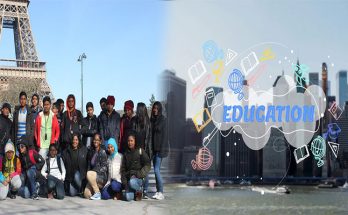Innovation has always been at the core of higher education, driving transformation and shaping the future of academia. As the landscape of higher education continues to evolve, new and emerging innovations play a crucial role in revolutionizing teaching, learning, research, and administrative practices. In this article, we will explore the key innovations that are shaping the future of higher education and discuss their potential impact on institutions, educators, and students.
1. Artificial Intelligence and Machine Learning
Artificial intelligence (AI) and machine learning technologies are revolutionizing higher education by enabling personalized learning experiences, predictive analytics for student success, and administrative automation. AI-powered chatbots, virtual assistants, and tutoring systems are enhancing student support services and engagement, while data analytics tools are providing valuable insights for institutions to improve retention rates and academic outcomes. The integration of AI and machine learning is creating a more efficient and tailored educational experience for students and educators alike.
2. Virtual and Augmented Reality
Virtual and augmented reality (VR/AR) technologies have the potential to transform traditional teaching methods by offering immersive and interactive learning experiences. In higher education, VR/AR applications are being used to simulate real-world scenarios, conduct virtual labs, and enhance student engagement through experiential learning opportunities. These technologies are expanding the possibilities for distance learning, skills development, and interdisciplinary collaboration, enriching the educational experience and preparing students for future careers in a digital age.
3. Blockchain Technology
Blockchain technology is disrupting higher education by offering secure, transparent, and decentralized systems for credential verification, academic records management, and intellectual property protection. By leveraging blockchain, institutions can ensure the integrity of student credentials, streamline administrative processes, and create tamper-proof records that are accessible to students and employers. Blockchain technology is revolutionizing the way credentials are verified, shared, and validated, providing a more efficient and trustworthy system for academic recognition and accreditation.
4. Gamification and Microlearning
Gamification and microlearning are innovative approaches that are transforming how students engage with course content, enhance their skills, and achieve learning outcomes. By incorporating game-like elements, challenges, and rewards into educational activities, instructors can increase student motivation, participation, and knowledge retention. Microlearning, on the other hand, breaks down learning modules into bite-sized segments that are easily digestible and accessible, catering to the preferences of modern learners who seek quick bursts of information. These innovations are reshaping the learning experience and promoting continuous engagement in higher education.
5. Collaborative Online Learning Platforms
Collaborative online learning platforms are revolutionizing the way students and educators interact, collaborate, and exchange knowledge in virtual environments. These platforms offer a variety of tools for communication, project management, content sharing, and group work, enabling seamless collaboration among students from diverse geographical locations. By fostering a sense of community, connectivity, and interactivity, collaborative online learning platforms are promoting engagement, critical thinking, and peer-to-peer learning, creating a dynamic and inclusive educational experience for all participants.
Innovations such as artificial intelligence, virtual reality, blockchain technology, gamification, and collaborative online learning platforms are reshaping the future of higher education by offering new possibilities for personalized, immersive, and efficient learning experiences. These innovations have the potential to enhance student engagement, improve academic outcomes, and empower educators to deliver high-quality, innovative instruction. As institutions embrace these technological advancements and pedagogical innovations, they are paving the way for a future of higher education that is dynamic, inclusive, and focused on preparing students for the challenges and opportunities of a rapidly changing world.





